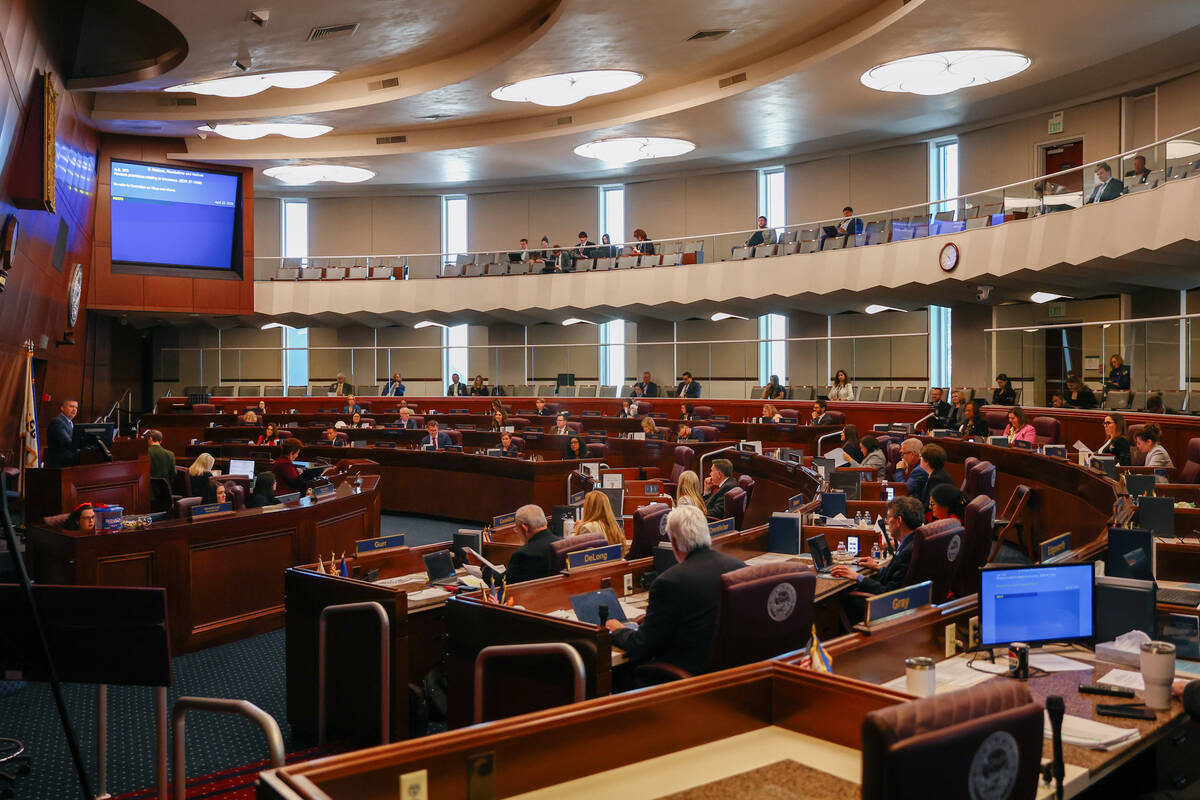Summerlin Studios proposal narrowly passes Nevada Assembly
CARSON CITY — Sony Pictures Entertainment and Warner Bros. Discovery were handed a significant — but close — win on Friday night when the Nevada Assembly voted 22-20 to advance a bill expanding the state’s film tax credit program.
Assembly Bill 238, proposing to massively expand the state’s film tax credit program to help fund the launch of a film studio called Summerlin Studios, now must be considered by the Nevada Senate. But the Senate has little time left to debate the proposal with only three days until the 120-day legislative session ends.
The proposed 31-acre film studio would be developed by Howard Hughes Corp. Backers say the studio and neighboring campus project could bring a $3 billion economic impact when development is complete. The bill proposes $95 million in annual film tax credits tied to infrastructure for 15 years starting in 2028.
Fifteen Democrats and seven Republicans voted yes.
Recent amendments adopted after a May 24 bill hearing would add financial safeguards and establish a special assessment district on the studio and campus land to support pre-K expansion in the Clark County School District.
AB 238 is one of two film tax credit expansions in consideration this session. Senate Bill 220, sponsored by Las Vegas state Sen. Roberta Lange, also proposes using film production tax credits to support building a film studio and technology campus at UNLV’s Harry Reid Technology and Research Park. That bill has not moved out of the Senate Finance Committee, which considered the fiscal impact to the state.
Friday night’s vote comes the same week as news of two state-commissioned reports found while the proposals to use tax credits to draw Hollywood film studios to Nevada will stimulate economic activity, neither will be able to generate enough tax revenue to pay for themselves.
Both bills have been the subject of fierce lobbying efforts from entertainment companies, labor unions and real estate partners. They argue the $1.6 billion expansion of the state’s film tax credit program would have an outsized economic impact. But opponents say the projects are not fiscally sustainable for the state and tax revenue could be better spent on other state services.
A state commissioned report released Monday night projected the state would receive 52 cents in tax revenue back for every dollar spent on the transferable tax credits.
The state’s existing tax credit program is capped at $10 million annually.
A film tax credit program expansion was previously pushed at the end of the 2023 session but never made it to a floor vote, despite attracting lobbying efforts from actors including Mark Wahlberg and Jeremy Renner.
Contact McKenna Ross at mross@reviewjournal.com. Follow @mckenna_ross_ on X.



















